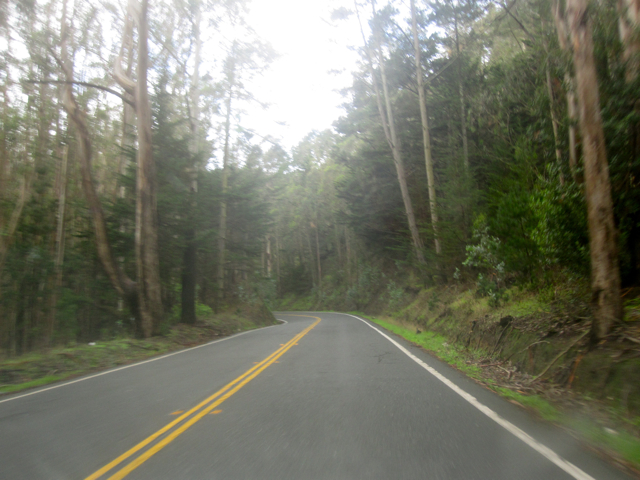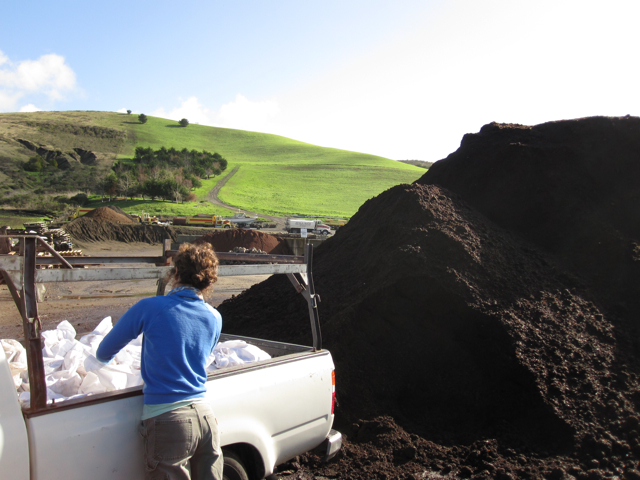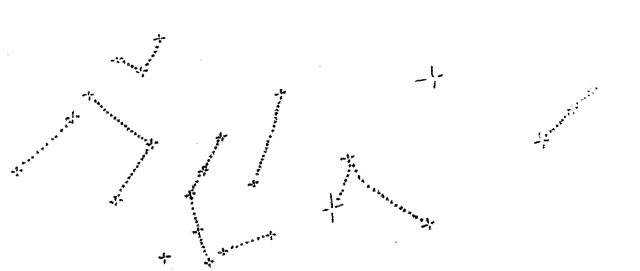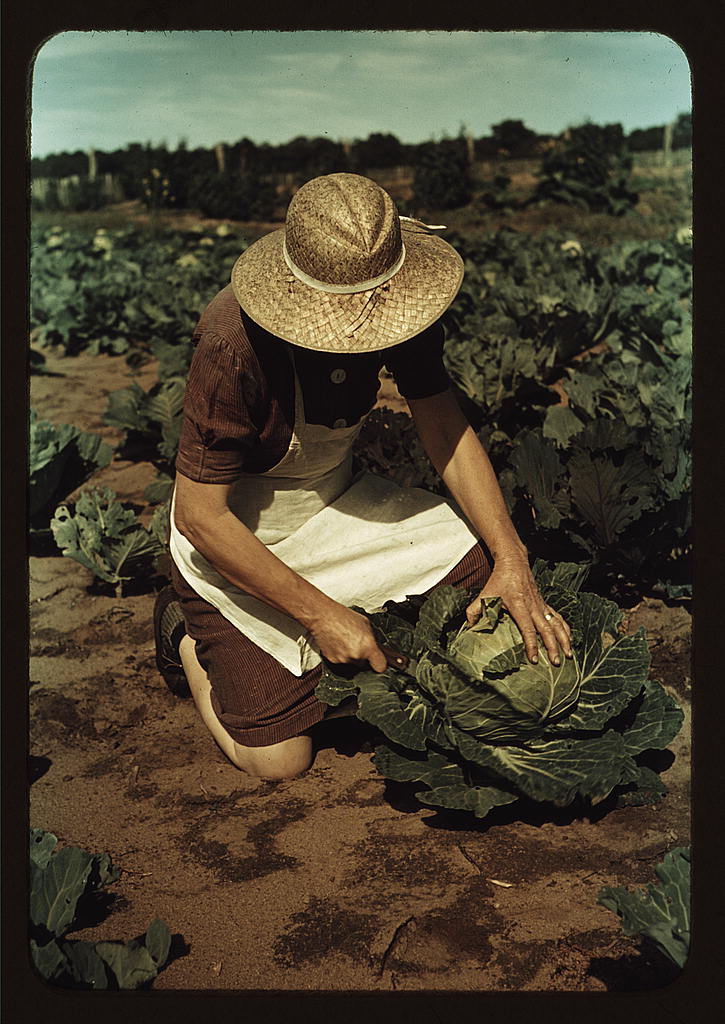Thank You!
February 9th, 2010 by caitlynYour support, pledges, and kind words mean so much to us. We are inspired and energized by the way a community steps forward when it is needed. Thank you so very much. Please keep passing the word around, we still have a ways to go!
Help an urban farm grow!
February 4th, 2010 by caitlynWell, folks, our fundraising campaign has officially begun! Our project is up on Kickstarter!
We’ve put a lot of work into our proposal, video, and rewards, and now we need your help to spread the word far and wide. Enlist all those friends of yours that are excited about innovative, urban agriculture, and ask them to pass the word on too, will you please? We are sparkling with excitement at the idea of sharing our goals (and needs!) with such an extended community.
So please, visit our Kickstarter page and tell your friends. And check back here for updates!
Love,
Caitlyn and Brooke
PS. Brooke was interviewed on Greenhorns Radio this morning! Give it a listen.
amendments
January 31st, 2010 by caitlynThe sun broke through the cloudy skies this weekend, just in time for a Saturday morning trip to Half Moon Bay for compost. We loaded up the truck and brought the mushroom compost back to the city to fortify the new herb beds we are building. After a few weeks of steady rain and indoor work, it felt so refreshing to be outside, admiring the sun and fresh green growth sprouting up everywhere. Rain is welcome in these parts, but this taste of springtime was a pretty pleasant treat!
a kickstart
January 26th, 2010 by caitlynAs we move forward this winter, one of our primary goals is to raise some funds that will allow us to expand our project. Â We want to be able to build a bigger space, grow more food, and allow ourselves more time for creative programming and educational events.
Since urban agriculture is such a new field, traditional sources of startup funding (loans) are a little less realistic for us, so we have to get creative. Â In the next week or so, we will be posting our project on Kickstarter, a website that hosts funding campaigns for creative projects of all sorts – from self-published comic books to feature films to tours for bands. The site hosts the project for a set amount of time, and you are offered rewards (put together by us) in return for your pledges.
We are excited about this creative way of approaching fundraising and support. It offers us the opportunity to be accountable to (and communicate with) a much broader audience than if we were to receive funding from one organization or institution. It’s a chance for our large, extended community to come together to support our project, and for us to be able to offer artful rewards in gratitude for the support.
We have been working hard over the past month to put together our proposal for the site, and we are excited to soon share it! We’ve got a short video coming soon, writings about our project and goals, and some artwork that we are pretty proud of. Â Stay tuned, friends! We will need your support.
(And for a little more info about Kickstarter, see this NY Times Article).
winter work
January 25th, 2010 by brookeAbout a month ago Caitlyn and I sat down to evaluate the idea of running our business through the winter. Â The forecast didn’t look great. Â It is possible to grow greens through our relatively mild winter but growth slows down dramatically as the days shorten and the light dims. The arc of the winter sun is low and our garden is nestled between tall apartment buildings which block the light to one half of our garden beds. Â Taking into account rain, sluggish plant growth, dramatically reduced potential gardening space, we decided to put a hold on our seeding and sales. Â Just because farmers can grow year round in California doesn’t mean that a break isn’t essential. Â In other more inclement areas of this country, farmers have a built in break from November to the following March or April. Â It is a time to reflect on the past season, analyze the numbers, tweak the crop rotation for the following year, dream up new experiments, get an off farm job, or read books.
Little City Gardens’ self-imposed winter break has been everything but slow. We have stepped back, stepped inside to evaluate our first year of operations, to pin down our goals, and to chart the steps towards accomplishing them. Â One thing we have discovered through the evaluation of our first season of work is that 50×50 ft (approximately 1/16 of an acre) is too small an area to run an economically viable business that supports two people, even part time. Â Our current space falls well under the requirements for efficient and effective economy of scale. After number crunching our past seasons’ yields, sales, labor hours and material expenses, we have estimated that we need at minimum a 1/4 acre of cultivatable land. Â We could operate more comfortably on 1/2 acre.
Another thing we know: Â we are committed to this work, to following the experiment of economic sustainability one step farther. Â So we made a to-do list.
1. Find a larger plot of land.
2. Fund raise start-up capital.
3. Make a plan to compile and contribute our research.
We have been engaged in these tandem pursuits and all that they entail: holding meetings, designing excel spread sheets, writing proposal’s, bio’s and letters, making phone calls, giving presentations, attending conferences. We’ve been asking ourselves rigorous questions about our vision, as well as the realistic scope of our capacity to affect all the change that we want to see through this one small business. Â Like most idealistic young people, we have grappled with how to focus and set realistic goals. Â We have sought and listened to the advice of many.
Here we are at Caitlyn’s kitchen table, the Little City Gardens’ informal office, typing away, calculator at hand, papers strewn about. Â Rain is coming down and tea kettle is boiling. This is our winter garden landscape. Connections are unfolding, and we are hot on the trail of a beautiful piece of land.
We miss working ‘in’ the business, getting into the garden on a regular basis but we are so thankful for this wintry perspective, the time to work ‘on’ the business.
humility
January 19th, 2010 by brookeWhen you pick up a handful of  soil from a finished compost pile,  you are holding a substance called humus.  It is sweet and dark.  It holds together like spongy crumbs of cake. Humus is decomposed organic matter and it becomes the organic component of the soil.  The creation of humus requires the action of soil micro-organisms, earthworms, fungi and insects. During the process of decomposition, numerous types and generations of creatures consume and excrete organic matter, reformulating it into smaller and smaller particles.  When they have broken down the organic matter as far as they can, the digested, reformulated material, the humus, is a very small but very complex carbon structure.
Humus is a colloid, which means that it has a negatively charged surface area that can hold and release many times its weight in water and positively charged plant nutrients. The higher the humus level of the soil, the greater the capacity of the soil to support plant life. Â In other words, humus is the storage and exchange site of minerals and nutrients; Plant grocery stores, food pantries, or farmers markets. Â The existence and continual creation of humus essentially supports all life.
I have been thinking about humus since last night when i was flipping through my Dictionary of Word Origins and the word humble caught my eye. Â It turns out that the concept of humility comes from humus,the word for earth.
Etymologically, humble means “close to the ground.” Middle English, from Anglo-French, from Latin humilis low, humble, from humus earth; akin to Greek chthÅn earth, chamai on the ground.
I found the connection compelling. Â Humility, in my opinion, is a noble quality. Â It is a spirit of deference, of respect. Â To be humble, as I see it, is to be guided in thought and action by the awareness of our unique and dependent position in a vast system. Â It is to acknowledge one’s own creative power and the importance of one’s particular role, while also acknowledging one’s complete dependence on the power and importance of others beings, creatures and materials.
In our culture humility is not always considered a virtue.  Humility is often ascribed negative connotations from ‘lack of pride, or self assertion,’ to an ‘expression of submission.’  Similarly, in our culture, being a farmer is a relatively uncelebrated profession, ascribed a low status.  At what point in our history did humans: beings of the earth, begin to negatively connote their relationship and engagement with humus: earth and at what point did we begin to culturally, economically de-incentivize the role of the farmer?
One of the things I value most about my experience working with soil to grow food is that it encourages me to be humble, in the positive sense. Â The hard work helps me to feel my own bodies relationship to the sustenance that it is coaxing. Â The very fact that growing food requires continual labor reminds me that food is extremely valuable, and in turn that my body is valuable. Â I enjoy the simple humility of this relationship.
conference this week
January 17th, 2010 by caitlynWe’re pretty excited about attending this year’s pre-conference for EcoFarm! The topic this year is: The Business of Sustainability: Growing Health, Wealth, and Ecological Integrity in our Food System. There will be workshops about everything from the legal aspects of a small farm business, to worker-owned cooperative models, to good planning and record keeping. Yes! Let’s put our heads together and make connections and compare notes.
We’ve been doing a lot of talking over here lately – trying to figure out the most sustainable way to go about this project, where to go from here, how to shape it into something that will make a real contribution. It’s always a nice comfort to remember that these efforts of ours are part of something much larger; there are many of us working together to chip away at these big goals from all different places and positions. I think this conference will certainly be that kind of inspiration.
a good future.
January 11th, 2010 by brookeMy friend Amy Franceschini is making a compilation of video interviews. She asked many folks, including myself, to share a vision of the state of farming and food in 2050. I do not often feel optimistic that collectively we are headed briskly enough down a restorative path. But in this case, I chose to respond idealistically.
*************************************************************************************************************************************
I see an economic system that favors and respects farmers. I see a population that values food over plastic. I am 70 in a cultural climate that teaches young people that food cultivation and stewardship of land is a well compensated pursuit, and encourages them to enter the field.
In the marketplaces, food is abundant and equally accessible to everyone, but not necessarily cheap. Not cheap, because the food is understood to be embedded with the valuable labor of back, hands and mind.
Farming is acknowledged widely as a creative art form. An art form that is guided by the efficiency of recycling resources, rather than the efficiency dictated by the market economy. Farmers are understood as designers who learn to observe ecosystems and to craft complementary agricultural techniques.
We have resisted. We have raised our strong collective voice. Governments no longer dole out subsidies to industrial-scale commodity farmers; mono-cropped, petroleum-fueled, pesticide-managed operations. The force of our tax dollars is no longer leveraged to skew the relevance and potential of small-scale, locally-based food production and distribution networks.
Farmers who build soil, avoid fossil-fuels, create habitat for native species, harvest rain water and teach young people, receive those subsidies instead.
NAFTA, CAFTA and other devastating trade policies have been boldly rejected. Any legal agreement which inherently dismantles the livelihood of family farmers, undermines local food production, and culturally relevant job opportunities has been nullified.
Every region of the world is encouraged, supported and well on its’ Â way to re-building sovereign and healthy local food economies. Land has been radically re-distributed and de-consolidated. Every person has the right to work the land in their place of origin. People do not have to migrate, at risk of death, in order to provide for their families. Soil, sustenance and the power to cultivate are every person’s right and priveledge.













